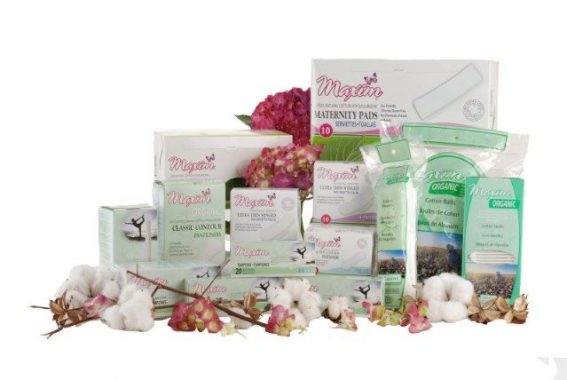Why Organic Feminine Hygiene Products are Superior
Why Organic Feminine Hygiene Products are Superior
There a lot of things that can go wrong with traditional menstrual products. Manufacturers bleach them, add chemicals, and they often treat the cotton with pesticides. Getting reactions to these ingredients, along with the harmful effects they have on the environment, can be reason enough to consider switching to organic feminine hygiene products instead.
The market for organic pads and tampons is increasing as women become aware of the consequences of non-organic alternatives. Luckily, there are quite a few options that can replace unnatural products with ones that are organic and sustainable.
When it comes to your body, you should be very conscious of what is going into it. Some of the ingredients in traditional tampons and pads are chemicals meant for sanitation. However, they can have negative effects. Other ingredients are entirely unnecessary, like the chlorine used to make them white which can also release toxins.

Why Buy Organic Over Non-Organic?
The chemicals used in non-organic products can be bad news for both your body and the environment. People choose to go with natural alternatives because they want to prevent allergies or toxins. They may also worry about what happens to the product after disposing of it.
Bodily Concerns
Women who are prone to allergies or skin rashes may find that non-organic pads and tampons give them trouble. There are so many different ingredients that go into these products. It can be hard to pinpoint exactly what is causing the reaction.
Using organic hygiene goods could narrow down the potential allergens. It could eliminate the problem entirely if it turns out that the reaction was from one of the many chemicals. It is very likely that women who suffer from skin allergies can solve the issue by using an organic brand.
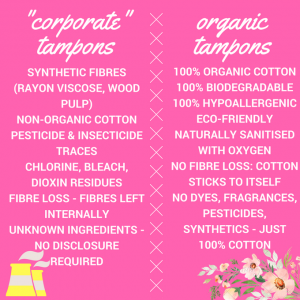
Even if women do not have physical reactions to non-organic products, they may want to consider ditching them anyway. Dioxins are found in the chemicals used for bleaching menstrual products, and phthalates are found in the plastic applicators of tampons.
Some data links these ingredients to cancer. Although, there is no proof that women who are tampon users are more or less likely to get cancer. Because these ingredients exist in such trace amounts, they most likely will not have a huge effect. However, it can be much more comforting to simply not have potentially harmful chemicals in your body.
Toxic Shock Syndrome (TSS)
TSS is a very rare condition that is often associated with tampons. It’s a bacterial infection that can be deadly if left untreated. Users can contract it with improper tampon use, usually when its absorbency is too high and it is left in for a long period of time. This is how the bacteria has time to grow.
Even if tampons are left in for too long, it is still incredibly rare. In the UK, an average of 40 people report cases every year. It is an alarming disease though, because out of those few cases, 2 or 3 people die from it.
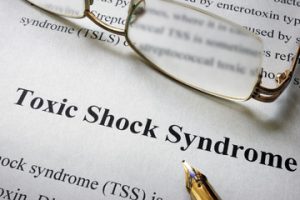
The Controversy with Toxic Shock Syndrome
There is a lot of controversy surrounding the topic of how organic tampons play a role in TSS. There are some doctors who adamantly claim that you cannot possibly get TSS when using 100% cotton tampons. However, there are other doctors who say that TSS can occur with any type of tampon if used improperly.
It seems a little odd that there should be an argument about this. The bacteria does not come from any ingredient in tampons (organic or not). It should be more about using tampons as directed. As long as women use low absorbency tampons and change them every 8 hours or less, there is no reason to contract this preventable disease.
Environmental Concerns
Whether or not you buy into the bodily benefits of organic feminine products, there are concrete benefits when it comes to the environment.
All-cotton menstrual products are biodegradable. Some companies even advertise them as compostable, although it’s not recommended because the absorbent material can be a breeding ground for bacteria.
Regardless, organic pads and tampons are better because they do not contain any synthetic fibers. The ecosystem cannot break down the synthetic materials in traditional products.
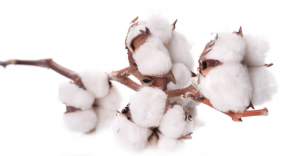
Since growers do not use pesticides pesticides on the cotton for organic items, they are much better for the environment. Some women opt to flush their sanitary products down the toilet, which becomes a problem for waterways and the creatures who live in them if they were non-organic.
The problem with traditional feminine hygeine products
With all the chemicals they contain, they can pollute water, become digestive issues for fish, and disrupt the nature order. Using organic cotton and disposing of it properly can eliminate this issue.
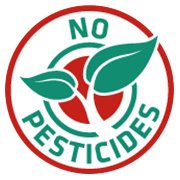
There are a number of companies who dedicate themselves to using ethically-sourced cotton that is good for the environment and for people. They not only care about the quality of the product, but also the method they get it in.
Natural cotton that is also fair-trade is great for farmers, too. Making sure that the producers get fair wages, benefits, and safe working conditions is yet another cherry on top of why organic is the way to go.
At What Cost?
For some people, making the decision to buy an organic alternative to their usual products may not be that simple. It is easy to see all the benefits that organic can have, but none of them are direct to the user. In the end, it could come down to the cost.
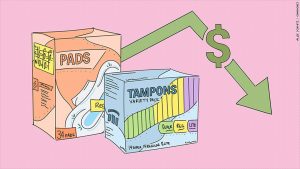
Organic tampons and pads are a little more expensive than their traditional counterparts. When buying in stores, it looks like you would be buying less product for more money. However, an easy way to get around this is to buy them in bulk so that you end up saving some cash.
For people who want to be sustainable, health-conscious consumers, the extra cost of buying organic is the right choice. Looking at all the potential positive impacts is pretty convincing. As they become more mainstream, organic hygiene products will be more readily accessible and maybe a bit more affordable.
Need more info?
Learn more about wholesale health products.
